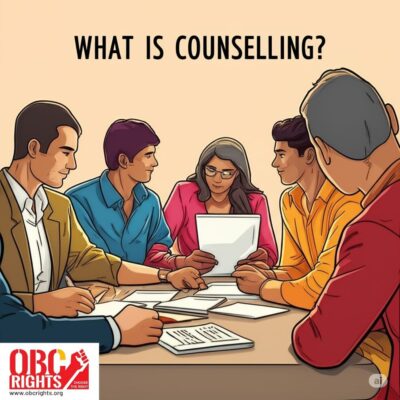For many students, College Counselling Day is a pivotal moment in their academic journey. After months of preparation and examination, counselling is the stage where choices are finally converted into real opportunities. Whether it is for professional courses like engineering, medicine, law, or others, being well-prepared on counselling day can make the difference between securing your preferred course or settling for less.
If you’re appearing for counselling for the first time, this blog will guide you on how to be fully prepared— mentally, logistically, and strategically.
1. Understand the Counselling Process
Before the day arrives, ensure you fully understand how the counselling process works. This includes:
- Registration and choice filling
- Document verification
- Seat allotment
- Reporting and admission confirmation
Tip: Go through the official counselling handbook or website. Make note of key dates, procedures, and any special instructions related to your category (General, OBC, SC/ST, etc.).
2. Keep All Documents Ready
Having your documents in order is one of the most important parts of counselling. These typically include:
- Admit card and rank/scorecard
- 10th and 12th mark sheets
- Transfer and conduct certificates
- Caste or community certificate (if applicable)
- Domicile/nativity certificate
- Income certificate (for EWS or scholarships)
- ID proof (Aadhaar card, voter ID, etc.), passport-size photographs
Tip: Carry both originals and multiple photocopies of each document in a well-organised file.
3. Prepare a List of Preferred Colleges and Courses
Make a list of colleges and courses you are interested in, ordered by your preference. Research them thoroughly in terms of:
- Cutoff trends from previous years
- Faculty and infrastructure
- Placement records
- Fee structure
- Location and language of instruction
Tip: Have a realistic mix of top, moderate, and safe options based on your rank.
4. Know Your Category and Quota Eligibility
Many students miss out on opportunities because they do not claim the reservation they are entitled to.
- If you belong to a reserved category (SC, ST, OBC, EWS, PwD, etc.), ensure your documents are up to date.
- Understand how the quota system works in your state or exam authority (e.g., state domicile, management quota, NRI quota).
5. Dress Appropriately and Stay Professional
While there is usually no dress code, dressing neatly gives a good impression and helps you stay mentally focused.
Tip: Choose comfortable yet presentable attire. Avoid a last-minute rush or experimenting with new clothes or shoes on the day.
6. Reach the Venue on Time (for Offline Counselling)
If counselling is being conducted offline, reach the venue well in advance to avoid any stress due to traffic, unfamiliar location, or queues.
Tip: Visit the venue a day earlier if possible. Carry water, snacks, and a pen.
For online counselling, ensure:
- A stable internet connection
- All scanned documents are ready in the required format
- Login credentials are accessible
- Familiarity with the portal interface
7. Have a Backup Plan
Despite your best planning, counselling outcomes may not always go your way in the first round.
Tip: Be mentally prepared for the second or third rounds. Understand the process of seat upgradation, sliding, or refund policies in case you decide to withdraw.
8. Stay Calm and Avoid Peer Pressure
You might find yourself surrounded by anxious students and over-involved guardians. It is important to stay focused on your path.
Tip: Discuss with your parents or mentors beforehand, but trust your preparation and priorities. Never go for specialised courses at the initial / graduation level.
Conclusion:
College counselling is not just a formality; it opens a gateway to your future. Thorough preparation reduces stress and enables you to make informed decisions under pressure. With the right documents, research, and mindset, you can confidently navigate the process and secure the best possible outcome for your academic career.



